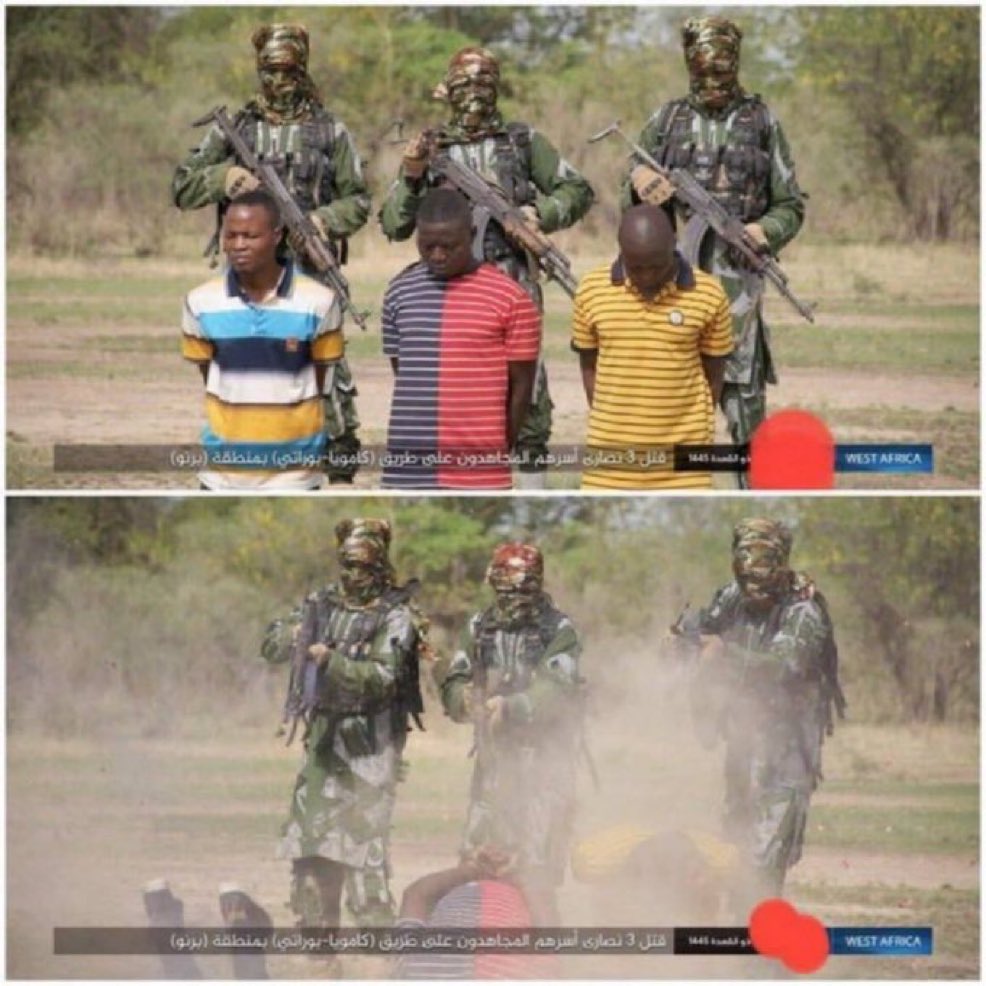As of September 28, 2025, Boko Haram is once again dominating conversations on X (formerly Twitter), with users sharing videos, reports, and heated debates about the Islamist terrorist group's activities in Nigeria. This trend isn't sparked by a single explosive event but rather by a confluence of recent reports, viral media clips, and ongoing calls for global awareness about the violence in northeastern Nigeria. For those unfamiliar, Boko Haram—whose name translates to "Western education is forbidden"—has been a persistent threat since its founding in 2002, evolving from a religious sect into a full-fledged insurgent group responsible for thousands of deaths, abductions, and displacements. But why the sudden spike in visibility today? Let's break it down.

The Spark: Shocking New Reports on Christian PersecutionA major driver behind today's trend is a fresh report from the International Society for Civil Liberties and Rule of Law (Intersociety), highlighting the staggering toll of Boko Haram's violence. According to the group, over 7,000 Nigerian Christians have been killed in the first 220 days of 2025 alone—that's an average of 35 deaths per day. Additionally, more than 18,000 churches and Christian schools have been destroyed or burned, and around 7,800 Christians abducted. These numbers paint a picture of systematic ethnic and religious cleansing, particularly targeting Christian communities in the northeast.Posts on X are amplifying these findings, with users sharing videos and images of burned villages, executed civilians, and pleas for international intervention. For instance, one viral thread details how Boko Haram and its splinter group, the Islamic State West Africa Province (ISWAP), have overrun at least 16 Nigerian military bases in the first half of 2025 using drones and night raids. This resurgence has displaced millions, exacerbating a humanitarian crisis that's been simmering for years.Media Figures and Viral Calls for AwarenessHigh-profile commentary has fueled the fire. Comedian and talk show host Bill Maher recently spotlighted the issue on his show, criticizing the global silence on what he called a "genocide attempt" against Nigerian Christians. He noted over 100,000 killed since 2009 and 18,000 churches burned, contrasting it with the attention given to other conflicts like Gaza. Clips from his monologue have been reposted widely, drawing comparisons to underreported atrocities elsewhere.Influencers and activists on X are echoing this, with posts like "Christians are the most targeted all around the world with zero outrage and protests for them!" gaining thousands of likes and reposts. Others highlight specific incidents, such as the 2013 massacre at the College of Agriculture in Gujba, where at least 44 students—many Muslim—were killed, reminding users that while Christians are disproportionately affected, the violence isn't exclusively sectarian.Debates: Religious Persecution vs. Broader TerrorismThe trend isn't without controversy. While many frame Boko Haram's actions as targeted jihad against Christians—citing raids on churches, schools, and villages—others argue it's part of Nigeria's wider insecurity. Critics point out that the group also attacks Muslims, mosques, and government officials who oppose their ideology. For example, recent attacks in Borno State have targeted motorists and military personnel indiscriminately, leading to alarms from local leaders like Senator Ndume about communities living in fear.Political angles add fuel: Some users accuse the Nigerian government of complicity, claiming military recruits include former Boko Haram members or that insecurity benefits certain elites. Conspiracy theories abound, including links to organ trafficking or foreign funding. There's also pushback against "fake news," with some labeling the focus on Christian victims as propaganda to stoke religious tensions, especially after Nigeria's Vice President spoke on Palestine at the UN.Historical Context and Ongoing StrugglesBoko Haram's evolution is key to understanding the trend. Founded by Mohammed Yusuf to promote strict Sharia law, the group turned militant after clashes with security forces in 2009. Splinters like ISWAP, which pledged allegiance to ISIS in 2015, have intensified the conflict, leading to inter-factional wars that have weakened but not eradicated them. The UN estimates over 350,000 deaths linked to the insurgency from 2009-2020, with violence continuing unabated.Recent floods in northern Nigeria have worsened the plight of displaced people, many fleeing Boko Haram, adding urgency to the discussions. Users are also reminiscing about past horrors, like the 2014 Chibok girls kidnapping, where girls were taken but boys slaughtered—often overlooked in media narratives.Why It Matters and What's NextThis trend underscores a broader frustration: Why does the world rally for some causes but ignore others? Posts compare Nigeria's crisis to Gaza or Congo, questioning media bias and calling for protests or aid. Some advocate for Nigeria's balkanization, arguing the country is an artificial colonial construct fueling ethnic strife.As the conversation evolves, it's clear Boko Haram's trend reflects a cry for accountability. Whether through military gains (like neutralizing commanders or freeing hostages) or international pressure, addressing this requires nuance—recognizing all victims while tackling root causes like poverty, corruption, and extremism. If you're following this on X, stay informed, but verify sources to avoid misinformation. The real question: Will this trend lead to meaningful action, or fade like so many before?This article is based on real-time X discussions and recent reports as of September 28, 2025. For more, follow ongoing threads or check organizations like UNHCR and Intersociety.
Enjoyed this article? Stay informed by joining our newsletter!


You must be logged in to post a comment.